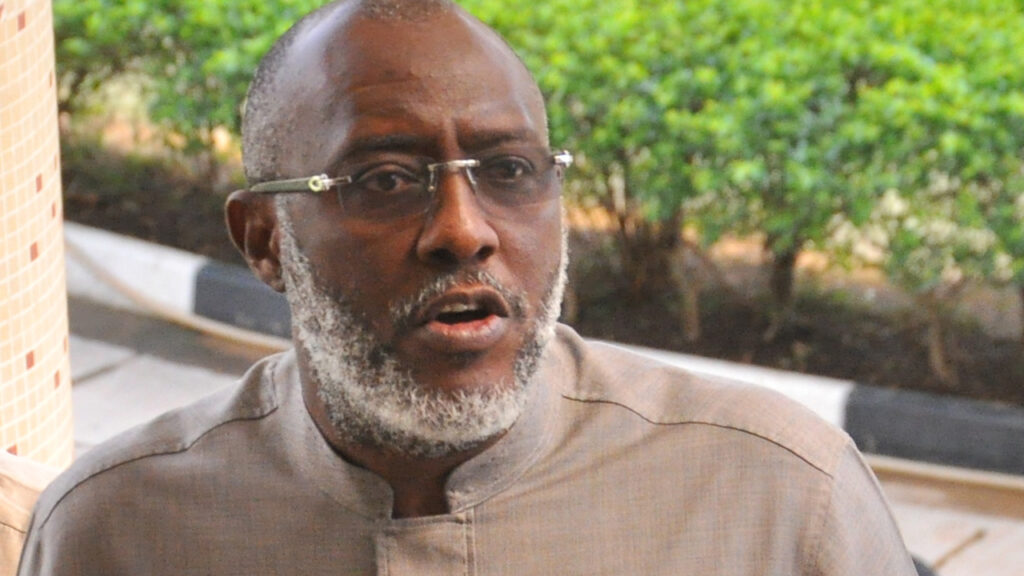The absence of Justice Obiora Egwuatu of a Federal High Court, Abuja on Thursday stalled the re-arraignment of former National Publicity Secretary of Peoples Democratic Party (PDP), Olisa Metuh, over alleged N400 million fraud.
The News Agency of Nigeria (NAN) reports that the court had, on September 28, fixed today for Metuh’s re-arraignment, following Justice Egwuatu’s inability to sit on that day.
The case, which was on number 16 on the Thursday’s cause list, however, could not proceed again due to the trial judge’s absence.
Egwuatu was said to be attending judges’ seminar in Lagos State.
The court, therefore, fixed Feb. 15, 2022 for former PDP spokesman’s retrial.
NAN reports that the Court of Appeal, Abuja on Dec. 16, 2020, nullified a Federal High Court judgement that convicted and sentenced Metuh to seven years imprisonment for money laundering.
In a unanimous decision, a three-man panel of Justices of the appellate court, held that the judgment of the trial Judge, Okon Abang, delivered against Metuh on Feb. 25, 2020, was tainted with bias.
The appellate court held that Abang, had by disparaging remarks he made in the judgement, betrayed his premeditated mindset against the defendant (Metuh) whom he accused of writing various petitions against him.
According to Justice Stephen Adah who delivered the lead verdict of the appellate court, allowing the trial court’s verdict to stand “will set a dangerous precedent.”
Consequently, it voided the conviction and sentence that was handed to Metuh and his firm, Destra Investment Limited, and remitted the case file back to the high court for a re-trial by another judge.
NAN reports that Metuh was jailed over the allegation that he received the sum of N400 million from the former National Security Adviser, rtd Col. Sambo Dasuki, prior to the 2015 Presidential Election, without contract approval or execution.
His earlier conviction followed a seven-count charge that was preferred against him and his firm by the Economic and Financial Crimes Commission (EFCC).
Source: Guardian.ng


